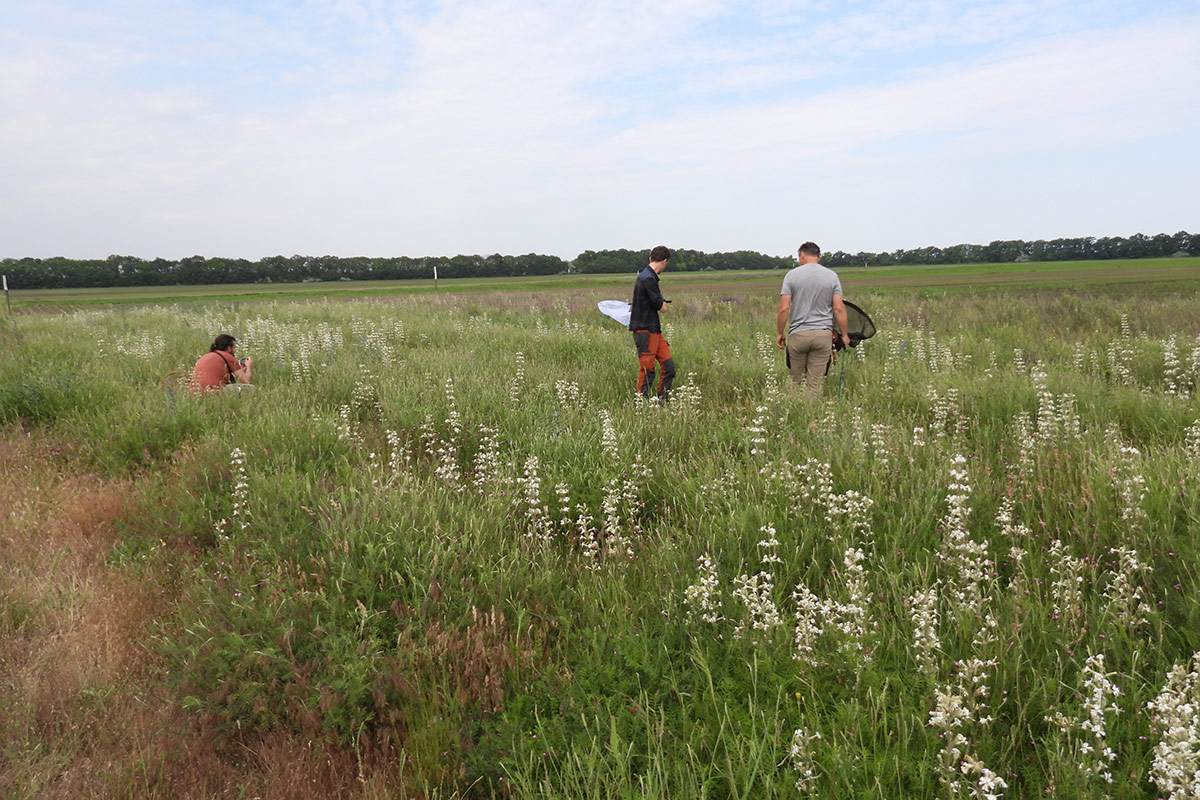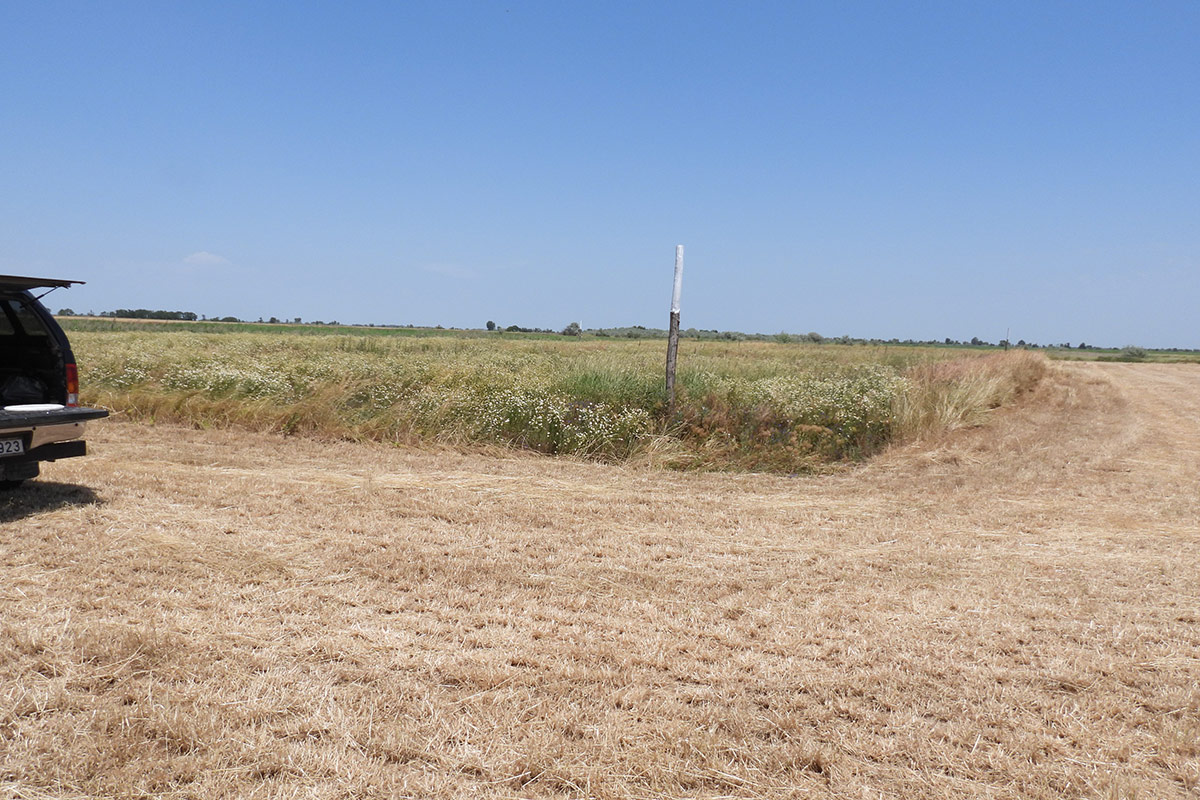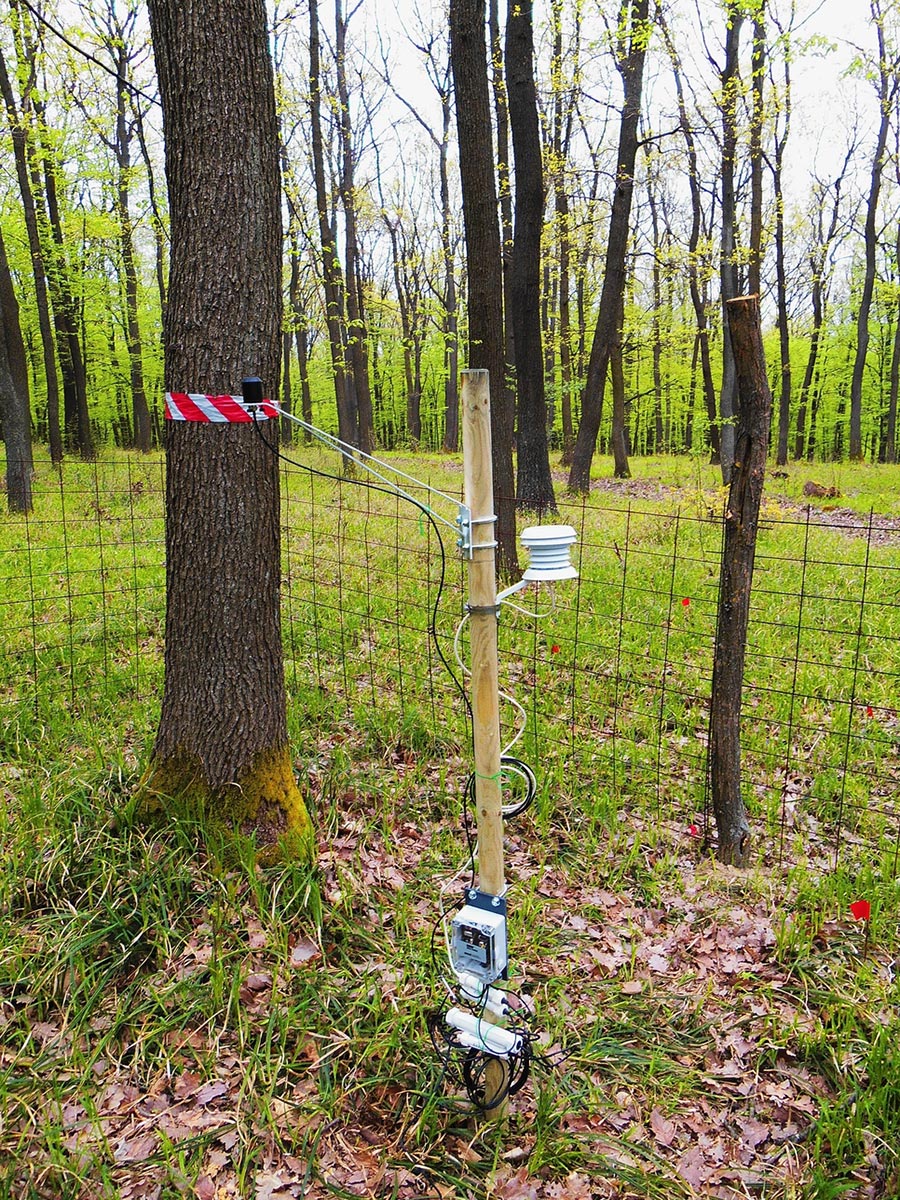Project leader:
Báldi András
Participating researchers:
Kovács-Hostyánszki, Anikó; Ódor, Péter; Kröel-Dulay, György; Süle, Gabriella; Vajna, Flóra; Tanács, Eszter; Kovács, Bence; Horváth, Csenge; Mojzes, Andrea; Ónodi, Gábor; Demeter, Imre; Somay, László; Kőhalmi, FruzsinaOf the 17 Sustainable Development Goals (SDGs) adopted by the UN, SDG 15 is ” Life on land “, which explicitly calls for the conservation, restoration and sustainable use of ecosystems and ecosystem services. The work of the Intergovernmental Platform on Biodiversity and Ecosystem Services (IPBES) synthesising existing knowledge is complementary to this. The focus areas of our planned research are within SDB 15, namely the sustainable management and restoration of different forest, grassland and arable ecosystems and the assessment of the impact of drought on grasslands. Our research is carried out in extensive national and international collaborations with BSc, MSc and PhD students from several universities (ELTE, MATE, SzTE, ÁOT), also including foreign students.
The project focuses on an experimental approach to test and demonstrate issues that contribute to the sustainability goals. Our research has already shown the importance of traditional, extensive grassland management for biodiversity and landscape conservation, and the diversity of Hungarian grasslands, which is outstanding in Europe. In addition to their economic use, forests have important conservation and recreational functions and ecosystem services, and therefore there is a growing emphasis on forest management practices that can provide timber and fire wood while maintaining the ecological functions and biodiversity of forests. Understanding the effects of climate change, especially drought in Hungary, and managing the problem is a fundamental task, which we targeted through field experimental research. ÖK ÖBI maintains three complex field experimental systems to understand the effects of grassland restoration, forest management and drought. (https://ecosystem-services.ecolres.hu/research/field-experiments, https://www.kiskun.lter.hu/en/node/837, https://piliskiserlet.ecolres.hu/).
Our aim is (1) to carry out the ecological research necessary for sustainable agriculture and to integrate the results into farming and policy. The starting point for our research is the so-called ecological intensification, which means that the processes necessary for farming, such as pest control or pollination, are not to be assisted by artificial means (e.g. agrochemicals), but by supporting natural processes and ecosystem services. In this way, natural enemies control pest infestations and wild bees ensure efficient pollination. We will monitor the populations of native pollinators and other arthropods, partly in our own experimental systems but also on a larger scale, and identify drivers of change in these populations through experiments and observations.
Our other main objective (2) is to promote the establishment of pollinators, butterflies, bees, etc. in the urban environment. We hypothesise that insect-friendly management of public spaces will increase pollinator insect populations. We have already established partnerships with several municipalities that want to help pollinators by different methods (less frequent mowing, sowing of diverse flower seed mixtures, installation of bee hotels). These urban studies offer a good opportunity for thesis work by university students.
Our third research objective (3) is to investigate the impact of weather extremes on grasslands, with a particular focus on the drought of 2022. Extreme weather events have occurred in the past, but will increase in frequency and intensity with climate change. In addition, many ecosystems are under threat from many other factors (overuse, pollution, biological invasions, climate change) and our previous studies have shown that these effects can be mutually reinforcing. Understanding the impact of increasingly severe extreme weather events on already stressed ecosystems is therefore crucial. Related to this is the question of how extreme conditions, such as heat waves, affect pollinator behaviour, potentially threatening populations and the food security provided by their ecosystem services.
In our fourth theme, we will continue sampling microclimate, soil conditions, the organism groups studied, and regeneration in the Pilis Business Mode Experiment (4a). We hypothesise that microclimatic differences across treatments will decrease as regeneration progresses. In the Pilis Lék experiment (4b), we expect a smaller increase in soil moisture in elongated gaps than in circular gaps, resulting in reduced understory growth and thus creating more favourable conditions for oak regeneration. Moreover, an increase in blackberry cover in the large circular plots may negatively affect both regeneration and understory composition.
Lendület Ecosystem Services Research Group


